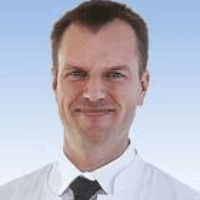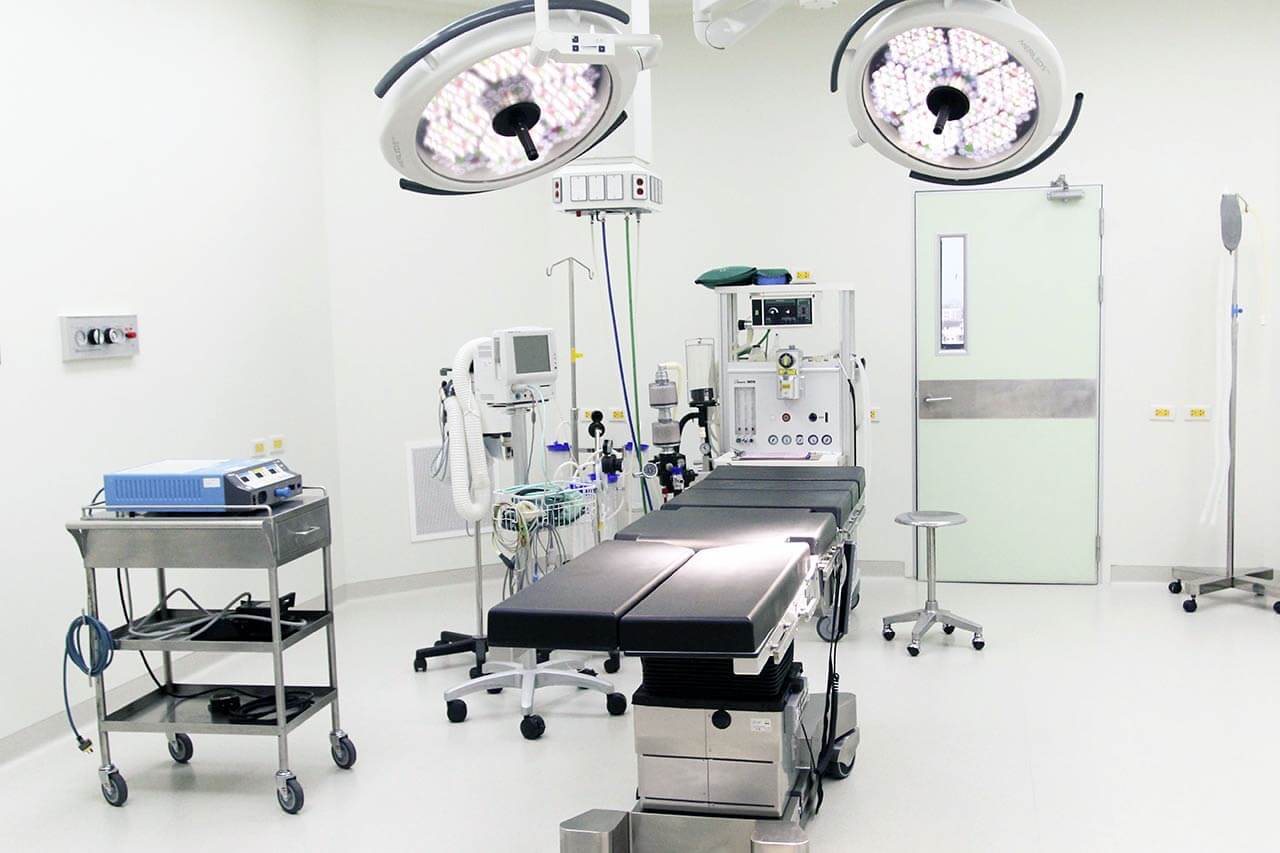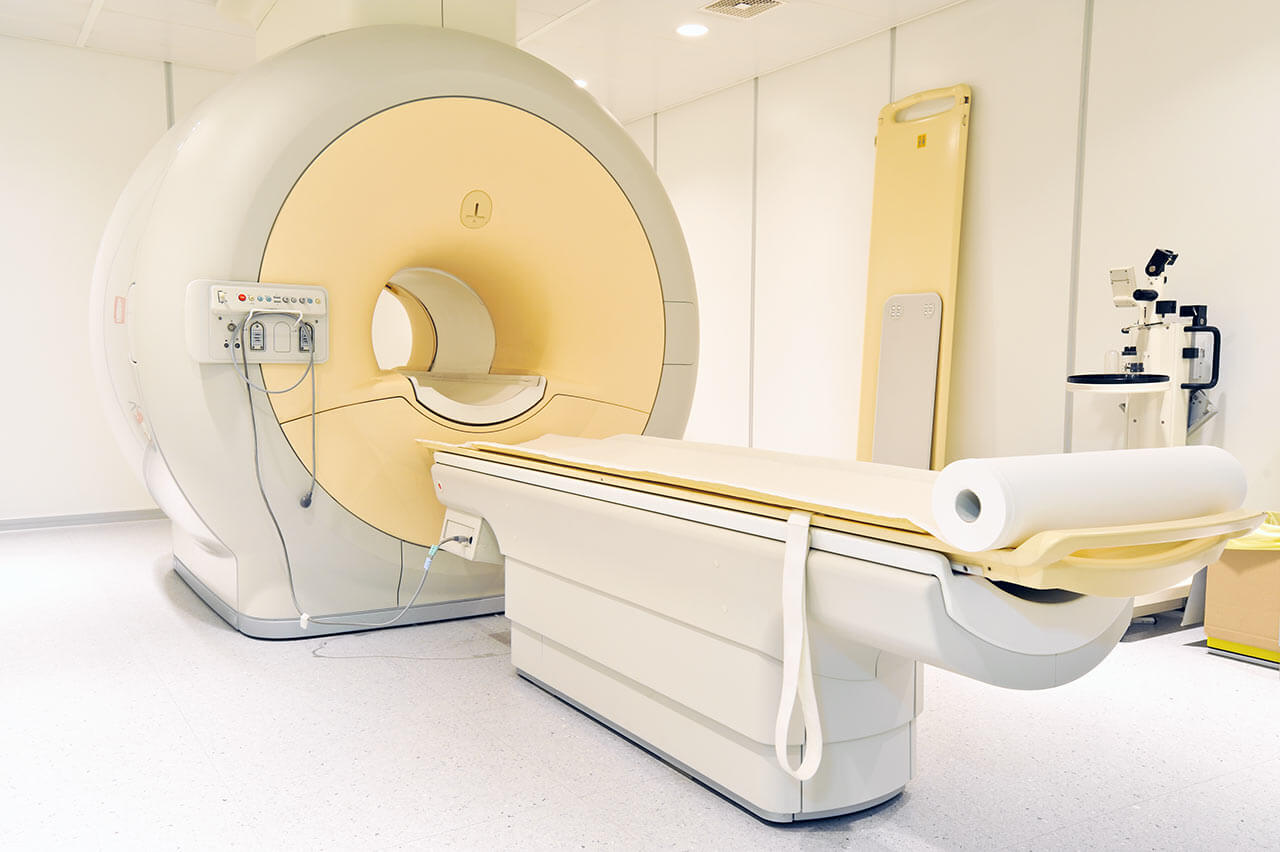
The program includes:
- Initial presentation in the clinic
- clinical history taking
- review of medical records
- physical examination
- laboratory tests:
- complete blood count
- general urine analysis
- biochemical analysis of blood
- inflammation indicators (CRP, ESR)
- indicators blood coagulation
- neurological examination
- functionality x-ray
- CT/MRI scan
- neuropsychological tests (on indications):
- ENMG (electroneuromyography)
- EEG (electroencephalography)
- SEPs (somatosensory evoked potentials)
- VEPs (visually evoked potentials)
- BAEP tests (brainstem auditory evoked potential)
- preoperative care
- removal of brain medulloblastoma with
- intraoperative neuronavigation
- histologically and immunohistochemically
examination of the remote tissues - blood transfusions (if needed)
- 1-day intensive care unit stay
- symptomatic treatment
- control examinations
- the cost of essential medicines and materials
- nursing services
- full hospital accommodation
- developing of further guidance by specialists
in oncology and radiotherapy
Required documents
- Medical records
- MRI/CT scan (not older than 3 months)
- Biopsy results (if available)
Service
You may also book:
 BookingHealth Price from:
BookingHealth Price from:
About the department
The Department of Neurosurgery at the Hospital Schwabing Munich offers the full range of services in its area of specialization. The department successfully performs operations to treat diseases and injuries of the brain, spinal cord and spine. It also has a 24-hour emergency medical service. Close cooperation with specialists in the field of orthopedics and traumatology, radiology, anesthesiology and early rehabilitation allows providing comprehensive medical care. The patients can be confident that they will receive interdisciplinary and most effective treatment. Clinical practice is based on an individual approach to each patient and his clinical situation. In addition, high treatment success rates are achieved through the use of the most advanced computer-assisted medical technologies – navigation systems allow performing interventions on the brain and spinal cord with pinpoint accuracy, guaranteeing the patient maximum safety. The department is headed by Prof. Dr. med. Jens Lehmberg.
A team of the department's neurosurgeons has long experience in the field of spinal surgery. The specialists mostly admit patients with degenerative and inflammatory diseases, as well as spinal tumors. Due to the presence of advanced equipment in the department, many surgical interventions are performed using minimally invasive techniques that contribute to the rapid postoperative recovery of the patient, almost reduce the risks of postoperative complications to zero and significantly alleviate pain. For example, the department performs neurosurgical interventions for spinal disc herniation and spinal stenosis using minimally invasive techniques. When treating spinal instability, preference is given to function-preserving surgery using prostheses. If after studying the patient's medical history and diagnostic results, the specialists come to the conclusion that such treatment will not lead to the desired result they resort to modern stabilization techniques. It should be noted that many spinal surgical procedures are performed in cooperation with doctors from the Department of Traumatology and Orthopedics, with the use of innovative 3D computer-assisted navigation.
The treatment of brain, spinal cord and spinal tumors is also one of the priorities of the department's work. After the patient undergoes a comprehensive diagnosis, the diagnostic results are considered at interdisciplinary tumor boards with the participation of neurosurgeons, oncologists, radiologists, chemotherapists and other doctors. Depending on the type of tumor, its location, grade and other factors, the specialist elaborate an optimal treatment regimen aimed at a complete cancer cure or achievement of long-term remission. In most cases, neurosurgeons perform a microsurgical intervention to remove the neoplasm, which can be complemented by radiation therapy and/or chemotherapy. However, when the tumor is located in a hard-to-reach place or its localization is associated with high risks of damage to vital anatomical structures, surgery is contraindicated
The doctors of the department work closely with the specialists from the Department of Neuroradiology, together with whom they provide the effective treatment of cerebrovascular diseases. The most common pathologies in clinical practice include brain hemorrhages, vascular malformations and cerebral aneurysms. The department's specialists have in their arsenal both endovascular and microsurgical procedures. The optimal type of intervention is determined individually.
The department's main clinical focuses include:
- Surgical treatment of degenerative and inflammatory spinal diseases
- Surgical treatment of spinal stenosis
- Surgical treatment of tumors of the spine, spinal cord and brain, including chemotherapy and radiation therapy in collaboration with specialized doctors
- Surgical treatment of cerebrovascular diseases (in cooperation with the specialists in neuroradiology)
- Brain hemorrhage
- Vascular malformations
- Cerebral aneurysms
- Emergency medical care for brain hemorrhages, traumatic brain injuries, midface fractures, skull base fractures, vertebral fractures, etc.
- Other medical services
Curriculum vitae
Professional Career
- Since 08.2018 Chief Physician of the Department of Neurosurgery at the Hospital Bogenhausen Munich.
- 06.2017 - 05.2018 Chief Physician of the Department of Neurosurgery at the Hospital Westpfalz Kaiserslautern.
- 05.2011 - 05.2017 Senior Physician with management responsibilities, Department of Neurosurgery, University Hospital Rechts der Isar Munich; key areas of work: skull base surgery, vascular neurosurgery, neuro-oncology and spinal surgery.
- 05.2006 - 04.2011 Senior Physician of the Department of Neurosurgery, University Hospital Rechts der Isar Munich.
- 06.2006 Board certification in Neurosurgery.
- 06.2001 - 04.2006 Assistant Physician, Department of Neurosurgery, University Hospital Freiburg.
- 08.1999 - 05.2001 Internship in Neurosurgery, Institute for Surgical Research, Working Group on Experimental Neurosurgery, University Hospital of Ludwig Maximilian University of Munich.
Academic Activities
- 2017 Extraordinary Professorship at the Faculty of Medicine at the Technical University of Munich.
- 2014 Master of Business Administration in Healthcare, University of Erlangen-Nuremberg (in-service clinical practice).
- 2009 Habilitation and PD title, Technical University of Munich. Subject: "Cerebral microcirculation after global cerebral ischemia".
- 2002 Doctoral thesis defense, Institute for Surgical Research at Ludwig Maximilian University of Munich. Subject: "Mediator function of bradykinin and platelet activation factor in global cerebral ischemia".
Qualifications
- 29.02.2016 Basic Certificate of the German Spine Society.
- 08.12.2016 Master's Certificate from the German Spine Society.
- 01.02.2017 Vascular Neurosurgery Certificate of the German Society of Neurosurgery.
Clinical Interests
- Skull base surgery.
- Neuro-oncology.
- Vascular neurosurgery.
- Spinal surgery.
Memberships in Professional Societies
- AO Spine.
- Congress of Neurological Surgeons (CNS).
- German Society for Microcirculation and Vascular Biology.
- German Society of Neurosurgery (DGNC).
- German Society for Neuro-Intensive Care and Emergency Medicine (DGNI).
- German Society of Skull Base Surgery (DGSB).
- German Spine Society (DWG).
- European Association of Neurosurgical Societies (EANS).
- European Skull Base Society (ESBS).
Photo of the doctor: с) München Klinik Schwabing
About hospital
The Hospital Schwabing Munich is one of the oldest medical facilities in the Schwabing region with a history of over 100 years. The hospital is proud of the excellent state-of-the-art equipment, modern infrastructure, highly professional medical personnel and location in a picturesque park area. The medical complex is the academic hospital of the University Hospital of Ludwig Maximilian University of Munich and the University Hospital Rechts der Isar Munich, therefore, it offers unique innovative diagnostic and treatment methods. The treatment can be provided both on an inpatient and outpatient basis. The work of the medical center is based on an individual approach to each clinical case, as well as on the strictest adherence to high standards of quality, hygiene and safety.
The hospital has a large number of beds for patient hospitalization – more than 700 beds. The medical facility admits over 125,000 patients for diagnostics and treatment, and this figure grows steadily every year, which indicates the authority of the hospital not only in the region, but also throughout the country. In addition, the medical center often admits foreign patients for medical treatment.
The hospital presents almost all the main areas of modern medicine, including oncology, surgery, gynecology, gastroenterology, endocrinology, diabetology, otolaryngology, pulmonology, thoracic surgery, orthopedics, traumatology, neurosurgery, etc. In addition, the specialists of the hospital admit young patients for treatment, providing them with proper medical care.
Particular attention should be given to the competent team of doctors who have vast clinical experience, thanks to which they provide patients with effective treatment even in particularly complex clinical cases. According to the prestigious Focus magazine, many doctors of the clinic have been repeatedly ranked among the best German specialists. The experts also take care of the patients' comfort during treatment, surround them with care and show a humane attitude, supporting patients on their way to recovery.
Photo: (с) depositphotos
Accommodation in hospital
Patients rooms
The patients of the Hospital Schwabing Munich live in comfortable single, double and triple rooms with a modern design. The patient rooms have everything necessary for maximum comfort of patients. Each patient room has an ensuite bathroom with shower and toilet. All patient rooms are equipped with a telephone, which is available for an extra fee via a special card. The standard room furnishings include an automatically adjustable bed, a bedside table, a wardrobe, a table and chairs for receiving visitors. Wi-Fi is also available in the patient rooms.
If desired, the patient can stay in the enhanced comfort patient room, which additionally includes a safe, a minifridge and upholstered furniture.
The hospital also has a library with a large assortment of books, magazines, CDs and DVDs, a shop, a hairdressing saloon and a cafe where the patient can enjoy tasty snacks or a cup of hot tea, aromatic coffee and soft drinks.
Meals and Menus
The patients of the hospital are offered tasty and healthy three meals a day: breakfast, lunch and dinner. All dishes are cooked from fresh food available in the region. Breakfast and dinner are served buffet style, while for lunch the patient has a choice of three menus.
If you are on a specific diet for some reason, you will be offered an individual menu. Please inform the medical staff about your dietary preferences prior to the treatment.
Further details
Standard rooms include:
Religion
The religious services are available upon request.
Accompanying person
During the inpatient program, the accompanying person can live with the patient in a patient room or a hotel of his choice. Our managers will help you choose the most suitable option.
Hotel
During the outpatient program, the patient can stay at the hotel of his choice. Our managers will help you choose the most suitable option.




